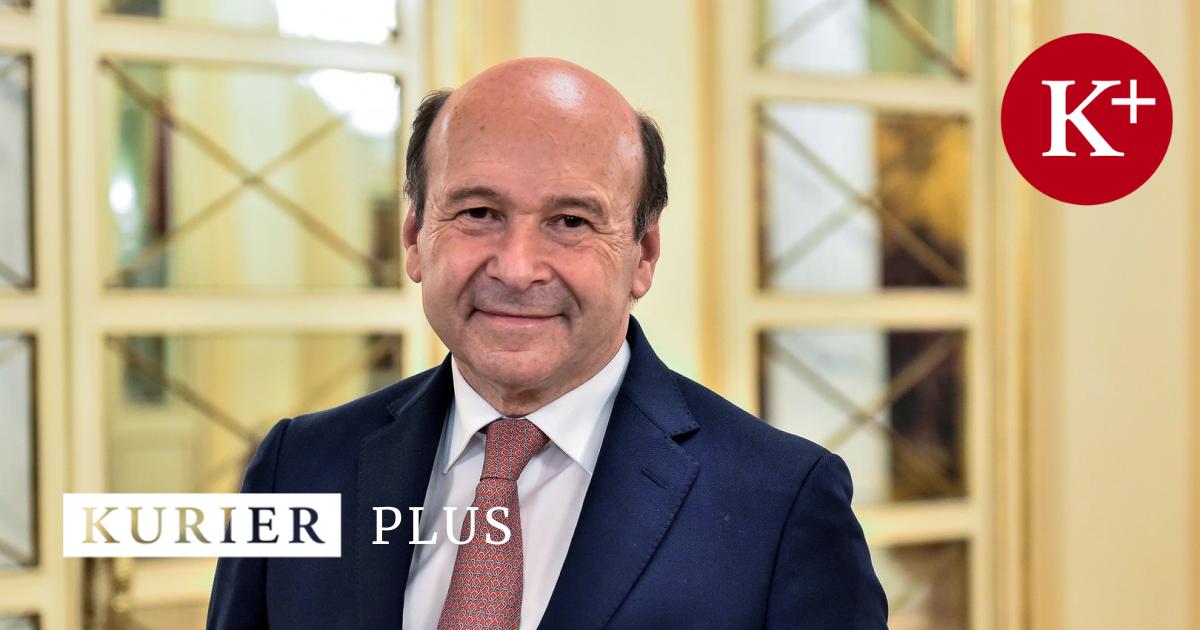How exactly did this decision come about?
When Giorgia Meloni’s government took office, the Scala Supervisory Board wanted to extend my contract for five years. But Meloni’s Secretary of State, Vittorio Sgarbi, wanted to bring the then RAI president, Carlo Fortes, who had previously directed the opera in Rome, to Milan as president. A law was passed that banned foreigners over 70 from running Italian cultural institutions. I will be 70 next year.
But Segiri was no longer in government, and Fortes would not go to Milan, but to Naples.
Asgarbi’s successor, Gennaro Sangiuliano, is no longer in office. He had just had to resign because of an affair with an influencer who had made the whole thing public on social media. The Scala Supervisory Board wanted to allow my contract to run until at least the end of 2026, but cultural politics prevented that too. This calls into question the entire Scala system and is also very dangerous.
Why dangerous?
Scala’s supervisory board is made up of 50 percent representatives of companies that pay nine million euros to sit at the table. They are now being ignored by the chaos of cultural policy.
Her fellow director Eike Schmidt, who was supposed to become head of the Kunstgeschichte in Vienna, lost his job at the Uffizi and instead ran for mayor of Florence. Now you can also try for a political career.
I have always lived by the principle that I prefer the politics of the theatre to the theatre of politics.
You have been director of the Vienna State Opera for ten years, and this is your fourth year in Milan. What is the most difficult theatre to manage?
Definitely the Scala in Milan. Because of the fear of corruption, there are so many rules in Italy that it makes everything complicated. Then there are the unions, they are not evil, but they are involved everywhere. For example, if two opera acts last longer than 90 minutes together, there must be a break in between, the unions insist. That alone means everyone goes home after 30 minutes, which is just illogical and expensive.
Do you realize in retrospect how good you have it in Vienna?
I noticed it when I was here. But the Viennese know very little about it. That's why you have to keep telling them: You're happy! Working in Vienna is a pleasure, music is like air, bread and water… and maybe white wine. And the opera in Vienna is not just for the rich, it is rooted in society as a whole.
After La Scala, you will take over the direction of the Orchestre de Chambre de Lausanne. Why?
Out of friendship with the artistic director Renaud Capuçon, whom I have known since my stay in Paris. And also out of enthusiasm for this wonderful orchestra.
Why don't you move to another opera house?
I don't need another medal on my chest like a field marshal. But I wouldn't rule out going to the opera again. I've now got a great offer from the USA, with very good pay, but you don't do everything for the money. What I will definitely miss is working on new projects. As an opera director, you always plan three or four years ahead, so you live in the present and the future at the same time. I would like to continue doing that, but it's stupid that politicians don't know anything about it and act like it.
Her successor at La Scala is Fortunato Ortombina, who actually did not want to leave La Fenice in Venice. How is the collaboration now to realize some of your projects?
I decided it was good, so it would be good.
How do you see the situation of opera in general?
During Covid, everyone said that nothing would ever be the same again. Now it's back to how it always was. What I find positive is the enthusiasm among young people, both young artists and young audiences. There are also new operas that appeal to the public, which is nice. What I find negative is that politicians are not making any progress, they want to interfere and do a lot of stupid things.

“Travel aficionado. Certified problem solver. Pop culture guru. Typical writer. Entrepreneur. Coffee trailblazer.”








More Stories
Magic Abba – Europe's #1 Music Show Live with the Band
Joseph Hader faces 'turbulence surrounding a peaceful person'
Live streaming platform Kino VOD Club brings focus to Graz